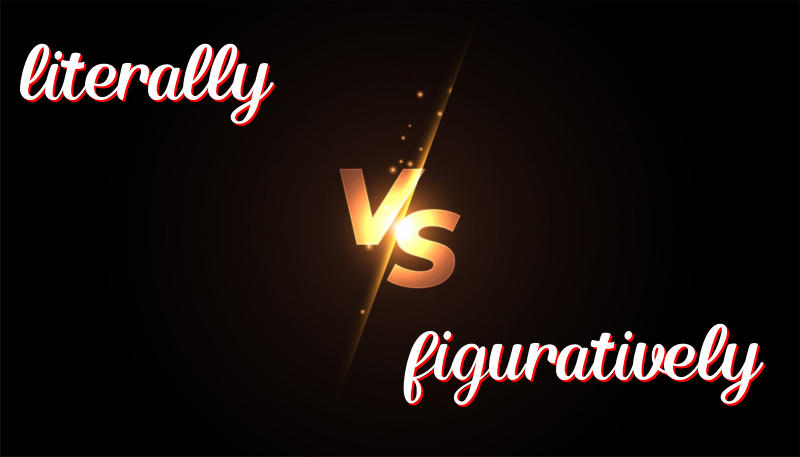英語單詞literally 與 figuratively的區別
August 22, 2024
Literally 和 Figuratively 間的不同
字源歷史
“Literally” 和 “Figuratively” 這兩個單詞有著不同的歷史根源。”Literally” 來自拉丁語 “littera”,意指「文字」或「字母」。這個單詞在16世紀首次被引入英語,意思是「照字面意思」。
“Figuratively” 則來自拉丁語 “figura”,意指「形狀」或「形象」,在14世紀末開始進入英語,表示「比喻地」。
如何使用它們
Literally: 當你說「literally」時,你指的是某事物確實發生或者是字面上的意思。例如:「他 literally 吃了一頭牛」。這表示他真的吃了一頭牛。
Figuratively: 當你說「figuratively」時,你是在使用比喻。這通常是為了強調某種情感、狀態或情境。例如:「他快病得要死了」這句話,並不是說他真的快要死了,而是形容他真的很不舒服。
記住差異的小技巧
一個記住這兩者區別的小技巧是:如果可以絕對地確定某件事,那麼你可以使用 “literally”。如果你只是想用比喻形容某件事情,那麼你應該使用 “figuratively”。
例句
Literally 的用法
- He literally jumped out of his chair when he heard the news.
當他聽到這個消息時,他真的從椅子上跳了起來。 - She literally worked for 20 hours straight.
她真的連續工作了20個小時。 - The water was literally freezing.
水真的在結冰。 - I’m literally out of breath.
我真的喘不過氣了。 - The building literally shook during the earthquake.
在地震期間,建築真的震動了。
Figuratively 的用法
- He figuratively jumped out of his chair when he heard the shocking news.
當他聽到那令人震驚的消息時,他簡直從椅子上跳了起來(比喻)。 - She is figuratively a shining star in her field.
她在她的領域裡簡直就是一顆閃亮的星星(比喻)。 - The city was figuratively drowning in tourists.
這座城市簡直淹沒在遊客中(比喻)。 - I’m figuratively at the end of my rope.
我簡直快要沒辦法了(比喻)。 - The event was figuratively a disaster.
這次活動簡直是一場災難(比喻)。
總結
總的來說,”literally” 是指某事物確實發生,或是與其字面意思一致。而 “figuratively” 則是指使用比喻來強調某種感情或狀態。記住這個區別將有助於你在適當的情況下使用這兩個詞,從而使你的表達更加準確和有力。

Leave a Reply
You must be logged in to post a comment.